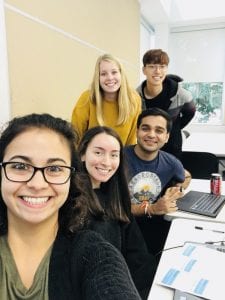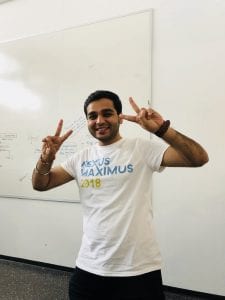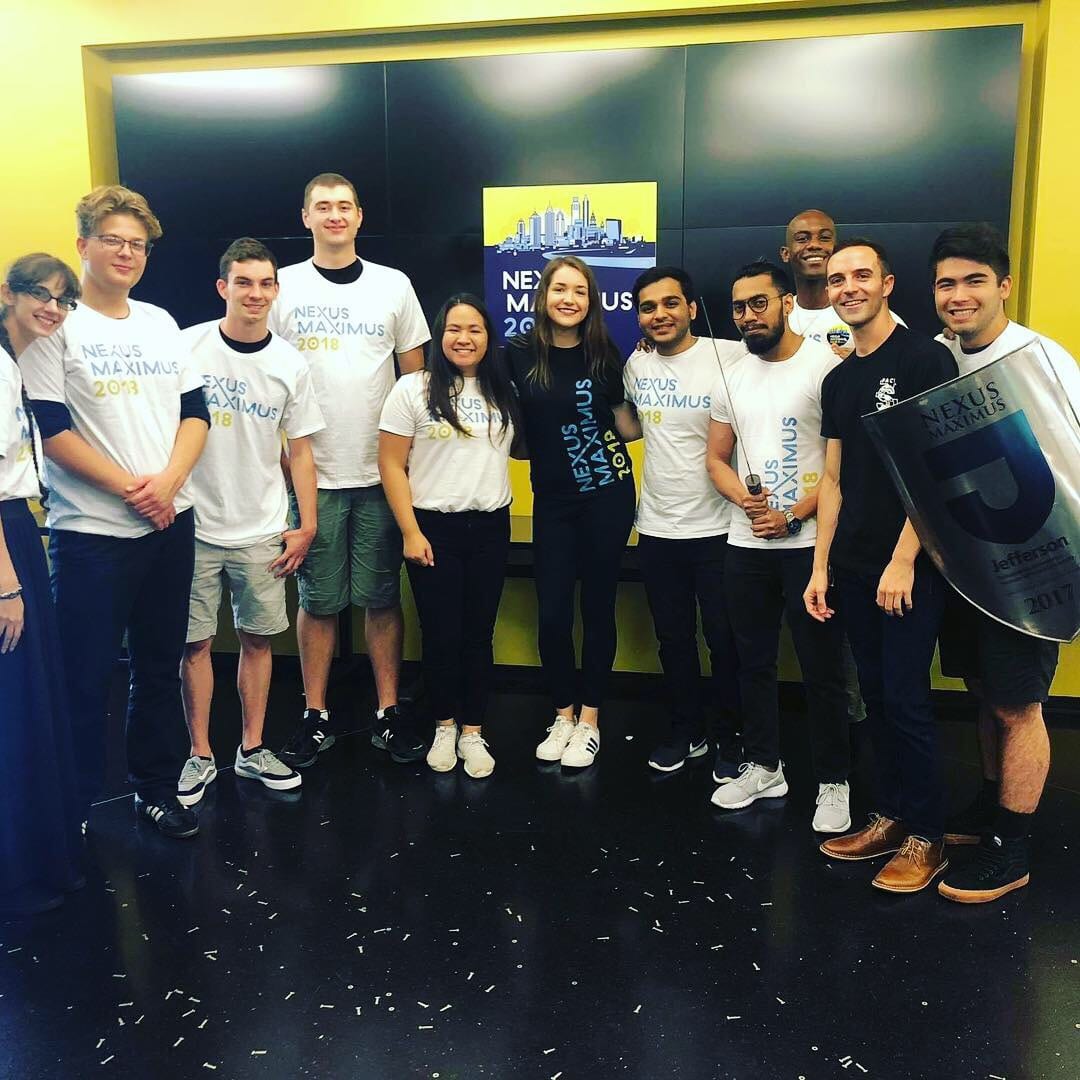In September 2018, students from Pace University’s Seidenberg School of Computer Science and Information Systems presented innovative solutions to problems at Nexus Maximus. In order to showcase their hard work properly, we reached out to some of the students who attended the conference in order to hear about their experiences first-hand.
Nexus Maximus, created by Jefferson (Philadelphia University and Thomas Jefferson University), is a conference which gives undergraduate and graduate students a platform to present innovative projects each year. The 2018 conference opened the minds of students to explore many topics, including improving health care access, designing healthy communities, developing new policies and business models to deliver sustainable value to the community, and building community diversity. According to Jefferson, students had the opportunity to “evaluate and seek innovation that supports the health and well-being of specific local community populations.”
Of the Computer Science, Information Systems, and Information

Technology students who attended the conference—Chinmay Joshi, Ronak Pansara, Ezana Ceman, Joseph Goggin, Kyle Hanson, Naglis Bukauskas, William Bender, Christopher Cherestal, and Laina Posner—two students got in touch with us to discuss their experiences. They outlined what they experienced and highlighted the best portions of the weekend-long experience.
Ezana Ceman, a junior undergraduate student majoring in Information Systems and a New York City Design Factory (NYCDF) Product Innovation Project (PiP) Member, spoke with me about the 2018 conference. She called the event a “fun and innovative experience” and described it as “a unique 3-day team challenge that allows you to step out of your comfort zone and use your talents to create an amazing concept.”
Some of the concepts worked on included strategies to battle food insecurity, homelessness, and much more. While the projects themselves shined a light on the groups’ innovative minds, Ezana explains that recognition wasn’t the highlight.
The best part of the conference is the community participation itself, according to Ezana: “you get to meet students from all around the world and work together to make society a better place.”
Nexus Maximus assists students by giving them the opportunity to learn how to develop and present projects, but the inspiration comes from the students themselves. The willingness to create innovative solutions to communities problems showcases the determination that these students have to create a better world.
Ronak Pansara, a graduate student who will complete his master’s degree in Information Systems in May 2019, also spoke about his experience at Nexus Maximus and the project that his team presented.
Ronak’s team helped people seeking help on NYC streets by giving them detailed and professional signs. He explained that his team’s “project “Signs of Trust” is all about helping homeless people in a unique manner.”
He says further, “This project was inspired by problems arising in many areas. [Their team found that] homeless people were either ignored or people would not trust them as they might not use [the] money for [a] good cause. So that’s why we came up with a unique solution for bridging the gap of honesty and trust.”
“My experience at Nexus Maximus was  stupendous,” he states. “It not only helped me building my interpersonal skills, it also helped me in learning new things on how to work with people who were from different [countries].”
stupendous,” he states. “It not only helped me building my interpersonal skills, it also helped me in learning new things on how to work with people who were from different [countries].”
Ronak noted that the best part of his overall experience was “how [they] identified [their] individual strengths and weaknesses and how [they] utilized each other by working together in the project.”
“Though we didn’t win any awards, we did get one [non-governmental organization] (NGO) [which] supported our cause for homeless people,” Ronak states. The recognition in itself was a win for the team.
Another team, which included Chinmay Joshi and others, did get recognized with the “Maxime Innovation” award from the conference for maximum innovation. The team worked on a project, titled “Fresh Express”, that tackled how to better deal with food insecurity and waste within the Philadelphia area.
Overall, all of the students experienced growth and success at Nexus Maximus. Both Ronak and Ezana recommend this opportunity to other students. If you’re interested in attending in September 2019, grab some classmates and get to work on the next innovative idea!


